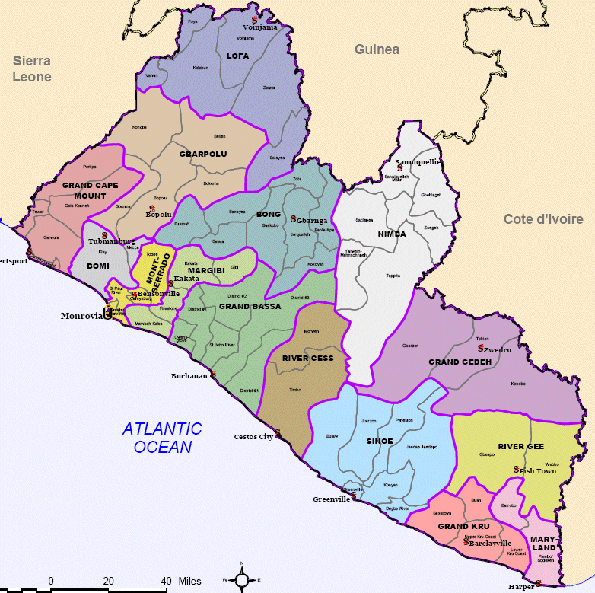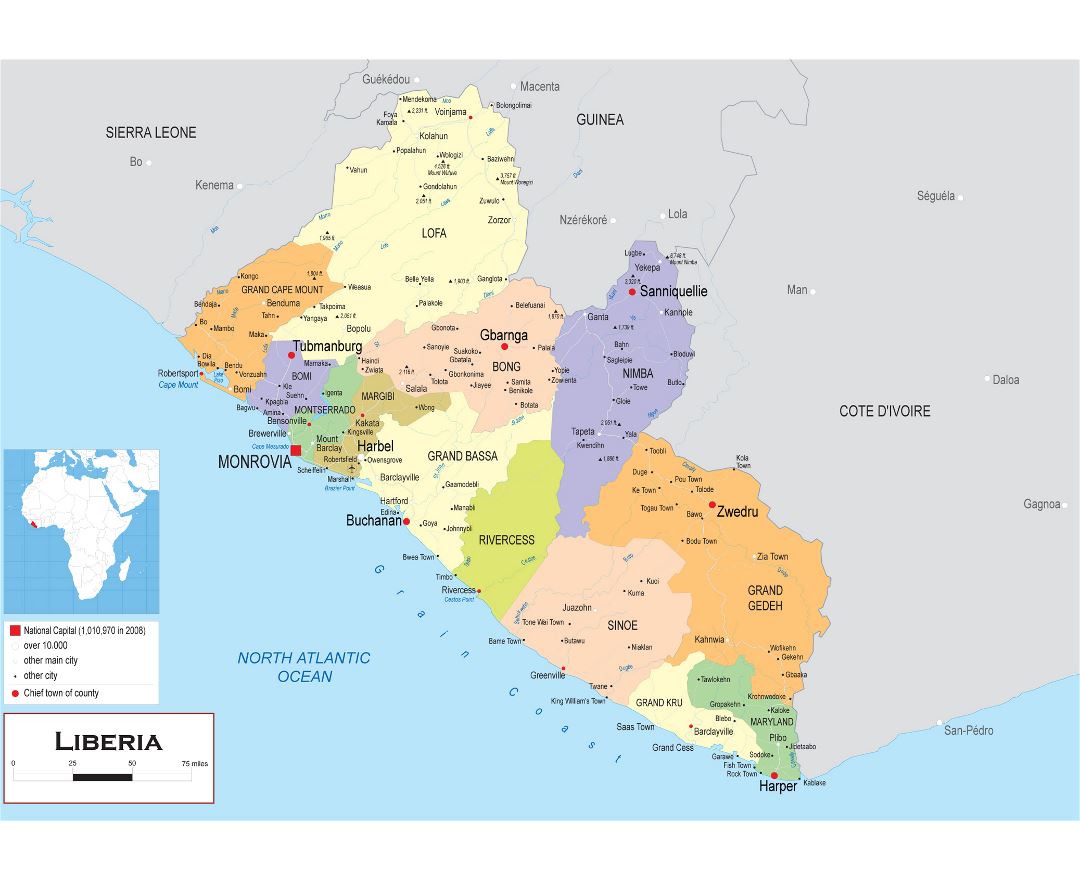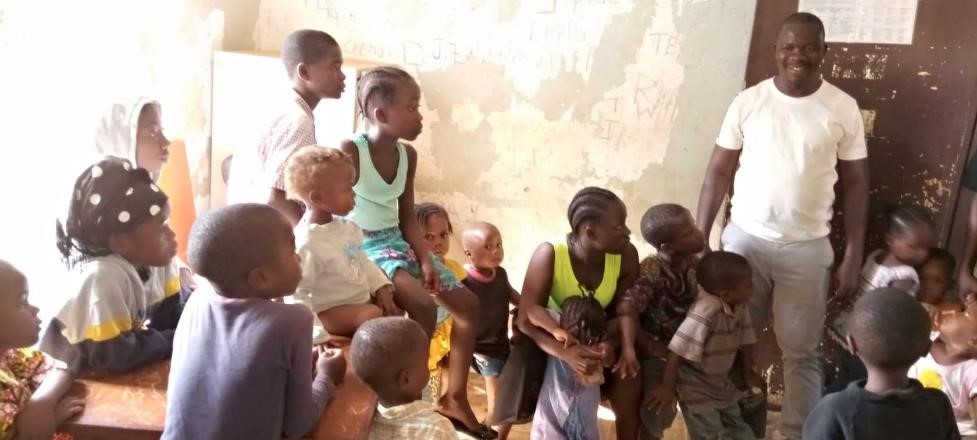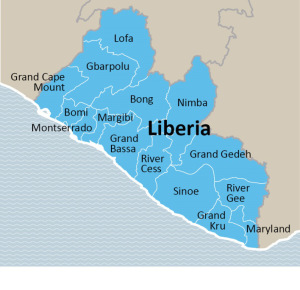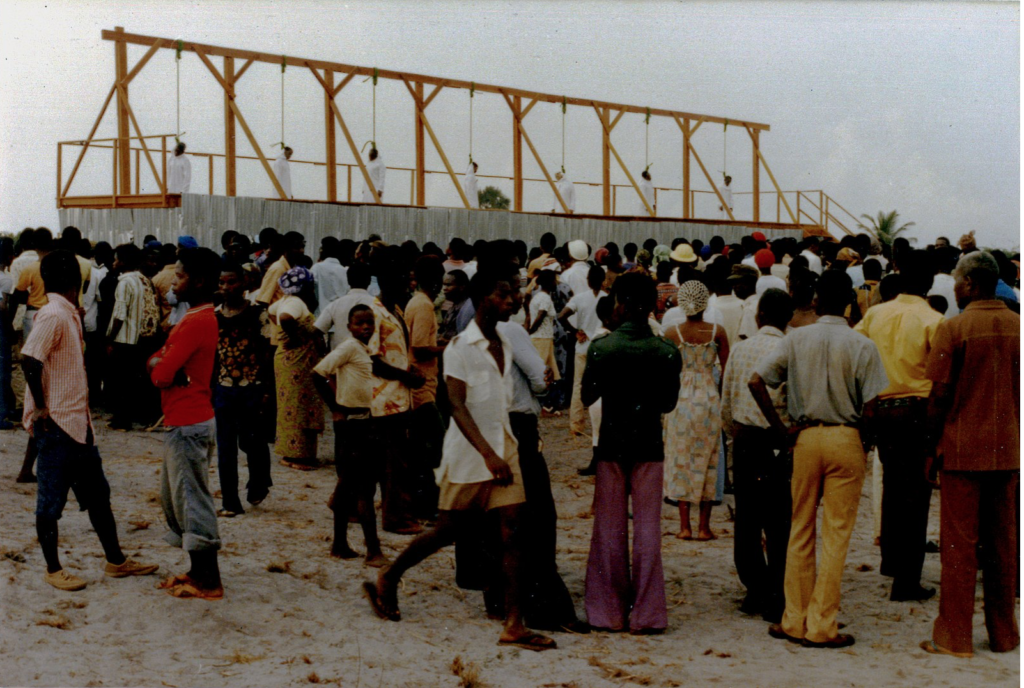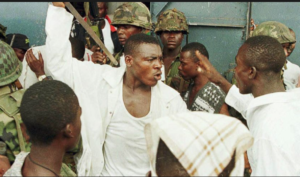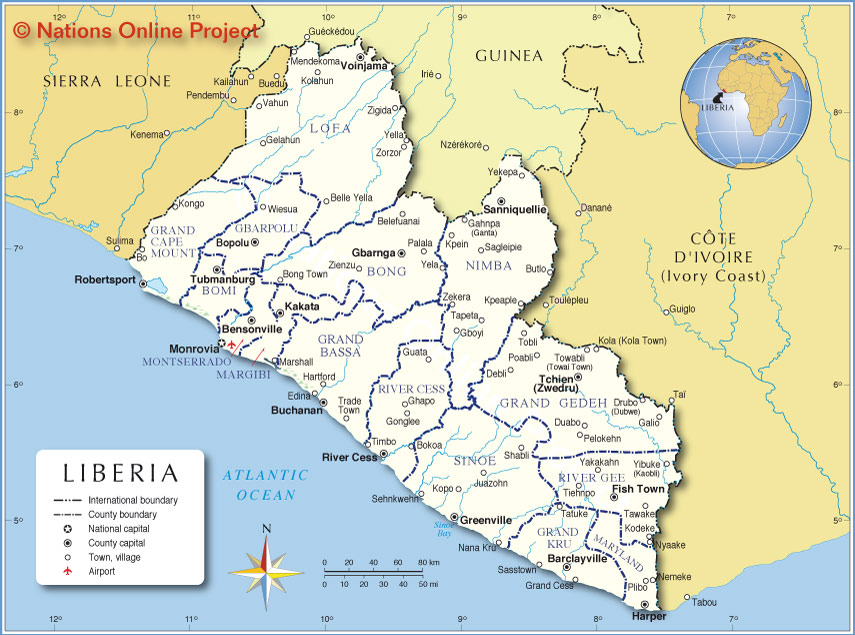The social unrest in Liberia continues. Reports of mysterious murders, unexplained disappearances and ritualistic activities continue unabated. Recently, I’ve reported multiple times on this site on the daily fear of ordinary Liberian citizens following the discovery of bodies ‘with some vital parts missing’ – an obvious reference to ritualistic activities – and after the discovery of victims of some of the gruesome murders which shocked Monrovia’s residents. See my posts of September 30, October 1, October 4, October 5, October 7, October 9, October 22 and October 23.
In the article below Joe Teh reflects on the possible causes of the current wave of mystery murders, disappearances and ritual killings which terrorizes Liberians. Interestingly, the first possible explanation he gives focuses on the general and presidential elections slated for 2023. This is not surprising. Liberia has a bad reputation in this respect. Secondly, he mentions Liberia’s open borders and the country’s fragile if not outright failing security system as another possible cause. In this respect, it is illustrative that the National Police Director, Patrick Sudue, has been denying that ritualistic murders are being committed in Liberia – in spite of the overwhelming evidence.
So far, President Weah has remained silent on this sensitive subject. The reasons for his silence are unknown but this only causes the persistence and spread of rumors and speculations. This is not how to rule a country. The government must act.
This is also the plea worded by Joe Teh in the article below. His article is recommended reading (webmaster FVDK).
Police Must Step Up To Stop the Wave of Killings and Disappearances in Liberia
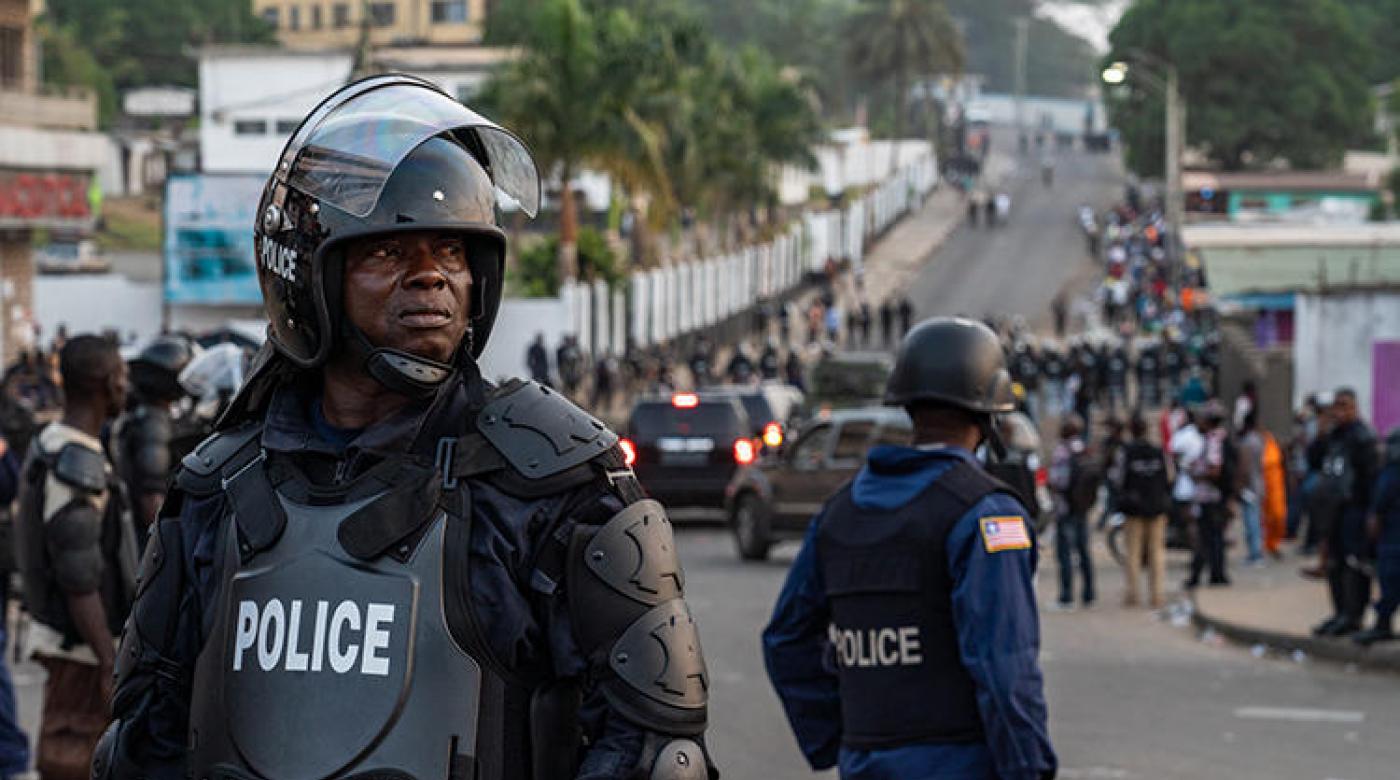
Published: November 9, 2021
By: Guest contributor Joe Teh – Daily Observer, Liberia
For those who are quite older as I’m, I presume memories of sudden disappearances of people and secret killings have been flashing across the psyche of Monrovia residents in the past several weeks or months. The series of secret killings allegedly going on in and around the city are scenes very hard to process.
For impoverished people for whom there is no public policy response to address their poverty and other social woes, living from day to day, going out and hustling to survive is marked by fear and terror. Yet, the ongoing mysterious disappearances of some residents in the city and the unsolved murders in the communities are a brutal reminder of the “boyo” era in the southeastern region of Liberia, especially Maryland County in the 1960s and ‘70s.
In those days, individuals seeking higher positions of influence in government, or wanting to maintain power, were alleged to have paid middlemen to kidnap and murder people for ritualistic purposes. Vital parts and organs were extracted from victims to satisfy “juju” or voodoo doctors’ requirements for a “powerful” desirous outcome.
The wave of ritualistic killings inflicted terror on the people who, for most part, must walk distances by foot to their farms or villages. You never know when a car will stop by you in a quiet alley or highway, especially when you are a lone traveler or two. “Heart men”, as the heartless killers were paradoxically called, would either offer you a ride or simply jump on you and subdue you to whisk you away to where they can murder you and take your heart and other organs.
The local and central governments remained silent and paid deaf ears to the horrific pains and despair impacting the general population. The simple fact is that some of the key government officials were instigators and participants in such barbaric behavior. They had personal connections in high places, which made it impossible for them to be exposed to the public. Those were the heydays of the now decadent True Whig Party.
And the lesson from history is the biblical precept: Make sure your sin will find you out. And like we say in Liberia, “99 days for rogue, one day for master.”
So came the time when heart men could not get protection from high places. The killing of a poor fisherman—Moses Tweh–in Harper, Maryland, exposed the likes of James D. Anderson, Superintendent of Maryland; Allen Yancy, member of the House of Representatives from Maryland County and son of disgraced Vice President Allen Yancy; Moses Seton, Wleh Taryonnoh and all other middlemen involved in the disappearance and murder of Moses Tweh. After they were tried and found guilty, they were put to death by hanging.
At the end of the 1980s, disappearances again resurfaced. This time, the victims were professional men. Each victim murdered was suspected of being either a political opponent of the government or perceived to be a supporter of opposition. No ritual purpose was suspected here.
Fast forward to the war and beyond. People were killed either because of their ethnicity or because they had been government employees.
During the time of the Interim Government of National Unity (IGNU), rebels’ killing of civilians and dissenting fighters became common in the streets and neighborhoods of IGNU controlled areas.
The police, under the command of Brownie Samukai, set up a special unit called Rapid Response UNIT. This was an elite unit which helped crack down criminals and stopped the wave of killings and burglaries in the town.
Few other mysterious deaths plagued the nation during the Ellen Johnson and the current George Weah administrations. The suspicious deaths of Michael Allison and Harry Greaves during the Ellen era as well as those of the four auditors from the Liberia Revenue Authority stand out. Why and how those well-meaning compatriots died remain mindboggling. Their killers have not been identified, or are efforts actually being made to apprehend the perpetrators of those dastardly acts?
But the trauma of such murders lives in the minds of the public. Added to that are the sightings of corpses in different communities in and around Monrovia in recent weeks with parts allegedly missing. A girl peddling a small market was found with feet and hands tied in an unfinished building in Monrovia. Her mouth also choked with clothes. Another man allegedly said he escaped from his captors and that he witnessed the murder of a boy who was in captivity with him.
To the contrary, the senior brass of the Liberia National Police have characteristically downplayed these reports and blamed the opposition political parties of instilling fears in the public to besmear the image of the government.
Really? It’s scary. If nothing else, the police authority’s response is further undermining the peoples’ trust in the security apparatus for protection. It is a flagrant disregard for history.
The police further said the corpses found around the city were dumped by relatives who could not afford to bury their dead family members. Isn’t that an insane assertion? The police’s continuous denial of ritual killings may encourage more deaths, because those murderous knuckleheads might perceive such irrational denials as a license to further kill. It may only exacerbate public panic as to where their country is headed.
There are two interesting facts why ritual killing is possible currently in Liberia. The first is the looming elections in 2023. Government positions are the most lucrative in terms of pay and perks, both official and unofficial. Most offices, without initiating programs in their sectors, bring zero balance forward at the end of the fiscal year. What have they done? There is no accountability.
The second is the unrestricted borders and weak security system. You can pass with anything, good or bad at the ports of entry/exit without problem. Just have your bribes in U.S. dollars ready and then literally anything is possible. With demand for human parts such as kidneys, surging in different parts of the world, including some neighboring countries, human parts marketers could be paying people to kidnap, kill and harvest parts for the buyers.
Like the man who escaped from his kidnappers at night, he said he overheard captors receiving US$12,000 as pay from the person who ordered them to seek and kill humans for their parts, like buying old, scrapped materials.
The third simply makes no sense. For example, why would people kill an immigration officer? Why would a man who is peacefully living pursuing happiness and serving God be murder; such as William R. Tolbert,III, son of assassinated President of Liberia? What has the son of former Liberian President Tubman be killed in cold blood? And the government is silent.
Our security system is fragile. Anything is possible.
This is why the police need to step up to investigate every piece of information about missing person and suspicious death. To merely brush aside reports of mysterious deaths does not help to boost confidence in the integrity of the security sector. Its net effect is to drive potential investors away. People planning to attend the bi-centennial celebrations in Monrovia, will also be scared away by these sad events.
In times like these, as in the late seventies, police need to act on every lead to find perpetrators of ritual killing in order to stamp out this evil act, so that people are safe to live in peace and go about their normal business. On the contrary, Police Director Patrick Sudue, sitting stone-faced in denial and then threatening a few law-abiding citizens, who are currently mustering the courage to divulge pieces of information about such heinous crimes, instead of encouraging people to convey more tips to the police, reeks of the obnoxious ineptitude and do-nothing syndrome that are spiraling Liberia into developmental doldrums.
Joe Teh, author of this article is Chief Content Officer of a U.S.-based online Magazine “lib-variety.org. He was also former News editor of the New Democrat, and Chief News editor of Star radio up to its closure by the Charles Taylor government on March 15, 2001. He now lives in Springfield, Mass. Joe Teh, can be reached at joetehwrites@lib-variety.org.
Source: Police Must Step Up To Stop the Wave of Killings and Disappearances in Liberia
